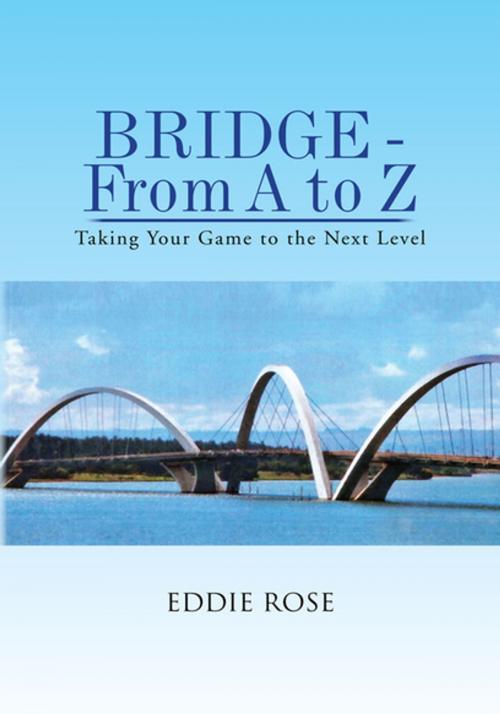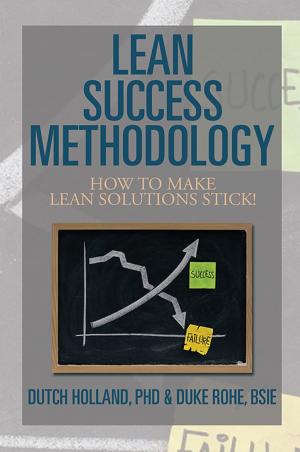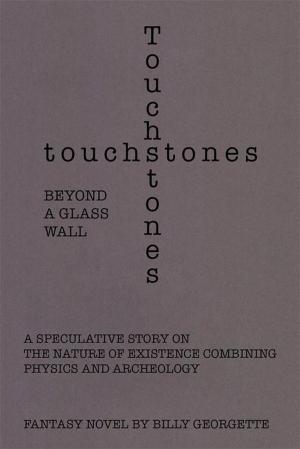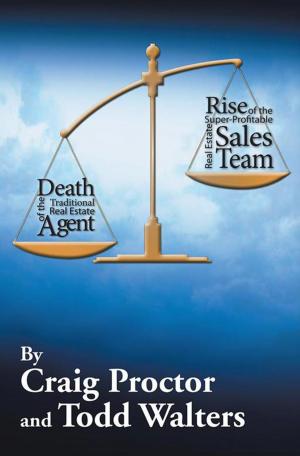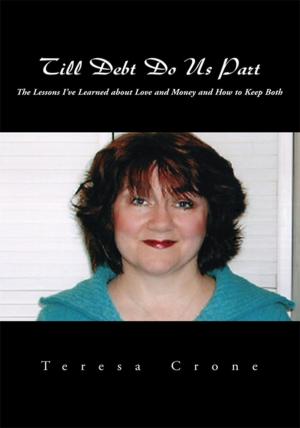Bridge - from a to Z
Taking Your Game to the Next Level
Nonfiction, Entertainment, Games, Board games| Author: | Eddie Rose | ISBN: | 9781462824519 |
| Publisher: | Xlibris US | Publication: | August 21, 2009 |
| Imprint: | Xlibris US | Language: | English |
| Author: | Eddie Rose |
| ISBN: | 9781462824519 |
| Publisher: | Xlibris US |
| Publication: | August 21, 2009 |
| Imprint: | Xlibris US |
| Language: | English |
People play bridge for different reasons. Some play bridge because of their competitive nature. Others play for the social interaction. Still others do it for mental exercise and health reasons. Some do it for sheer fun and enjoyment. And many play bridge for a combination of all of these. Regardless of your reason(s) for playing bridge, I think it is not unreasonable to assume that you would like to play better and with greater consistency and, even if winning is not necessarily your sole objective per se, to prevail occasionally at the table.
Bridge---From A to Z is not for the beginning bridge player. Nor will reading this book make you a bridge superstar overnight. But if you read it judiciously and put its principles into practice, it will enable you to make that critical breakthrough, and literally take your game to the next level!
In Bridge---From A to Z, I have enumerated 26 fundamental bridge principles, one for each letter of the alphabet, as the title suggests. To reinforce these principles, I have included numerous instructive bridge hands, almost all of which are taken from actual duplicate competition.
As most bridge players know, duplicate bridge is a game of skill. However, as in most games, the elements of luck (both good and bad) are there. You might play easy hands against strong players or difficult hands against weaker players, or just the opposite may be the case.. The opponents may give you gifts. Or they may fix you. These are things over which we have little or no control. Conversely, there are things over which we do have control. And these are the things I have emphasized in this book.
One does not need to have a background in higher mathematics to be a good bridge player. Certainly, some innate analytical ability is a big plus. Famous fictional detectives, such as Sherlock Holmes, Charlie Chan, and Ellery Queen, would probably have made great bridge players!
But the things that are really important---listening, counting, focusing---are relatively simple to understand and execute. And the bottom line is that you have to do this yourself. No one---not a pro, a teacher, a mentor---can do them for you. In reading and absorbing the principles enumerated in Bridge---From A to Z, you will feel more confident in your own inherent ability to play bridge at a higher level. And in so doing, irrespective of your specific reason(s) for playing bridge, I believe you will derive more fun and enjoyment from this wonderful game we all love so much.
People play bridge for different reasons. Some play bridge because of their competitive nature. Others play for the social interaction. Still others do it for mental exercise and health reasons. Some do it for sheer fun and enjoyment. And many play bridge for a combination of all of these. Regardless of your reason(s) for playing bridge, I think it is not unreasonable to assume that you would like to play better and with greater consistency and, even if winning is not necessarily your sole objective per se, to prevail occasionally at the table.
Bridge---From A to Z is not for the beginning bridge player. Nor will reading this book make you a bridge superstar overnight. But if you read it judiciously and put its principles into practice, it will enable you to make that critical breakthrough, and literally take your game to the next level!
In Bridge---From A to Z, I have enumerated 26 fundamental bridge principles, one for each letter of the alphabet, as the title suggests. To reinforce these principles, I have included numerous instructive bridge hands, almost all of which are taken from actual duplicate competition.
As most bridge players know, duplicate bridge is a game of skill. However, as in most games, the elements of luck (both good and bad) are there. You might play easy hands against strong players or difficult hands against weaker players, or just the opposite may be the case.. The opponents may give you gifts. Or they may fix you. These are things over which we have little or no control. Conversely, there are things over which we do have control. And these are the things I have emphasized in this book.
One does not need to have a background in higher mathematics to be a good bridge player. Certainly, some innate analytical ability is a big plus. Famous fictional detectives, such as Sherlock Holmes, Charlie Chan, and Ellery Queen, would probably have made great bridge players!
But the things that are really important---listening, counting, focusing---are relatively simple to understand and execute. And the bottom line is that you have to do this yourself. No one---not a pro, a teacher, a mentor---can do them for you. In reading and absorbing the principles enumerated in Bridge---From A to Z, you will feel more confident in your own inherent ability to play bridge at a higher level. And in so doing, irrespective of your specific reason(s) for playing bridge, I believe you will derive more fun and enjoyment from this wonderful game we all love so much.
